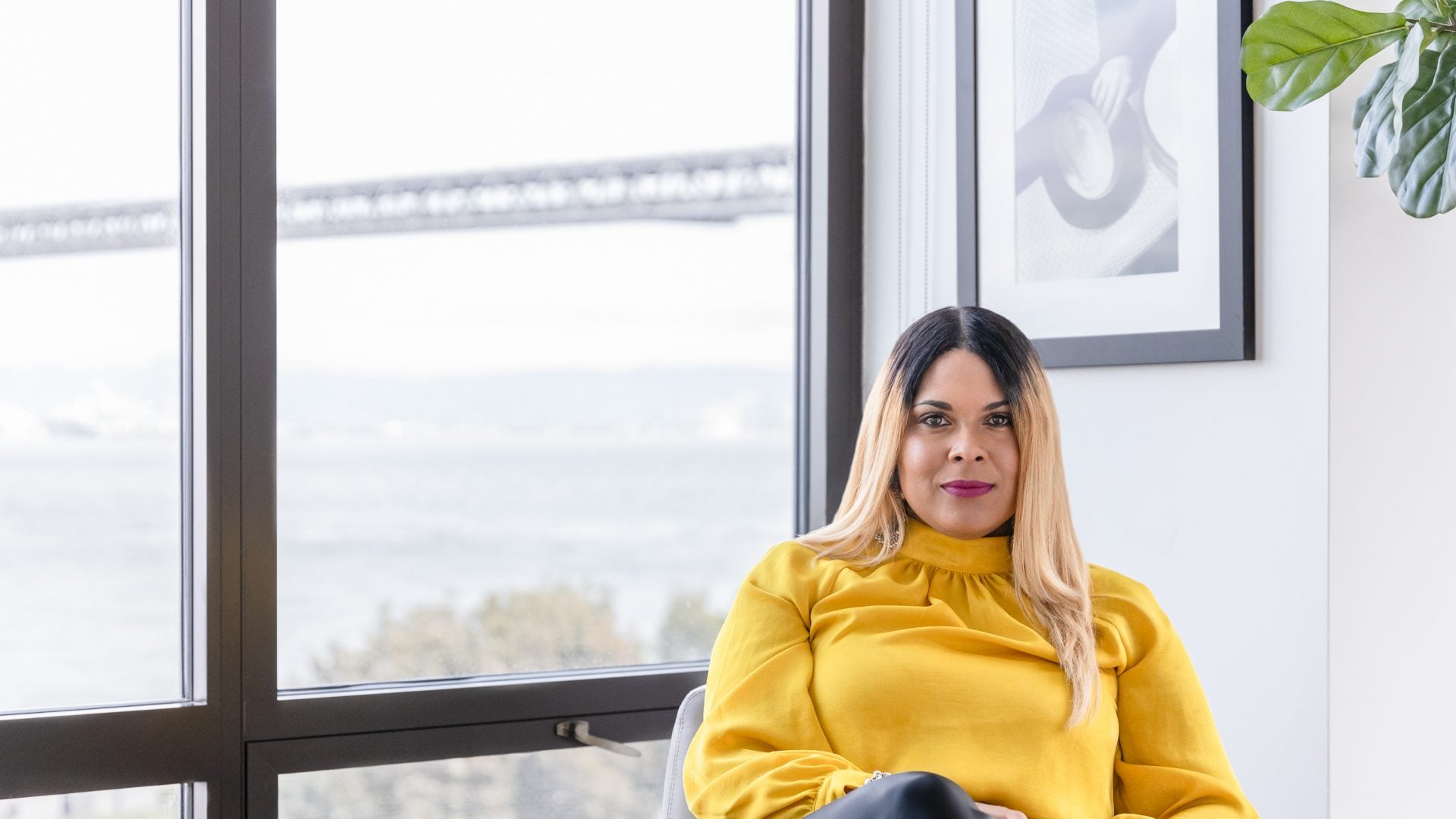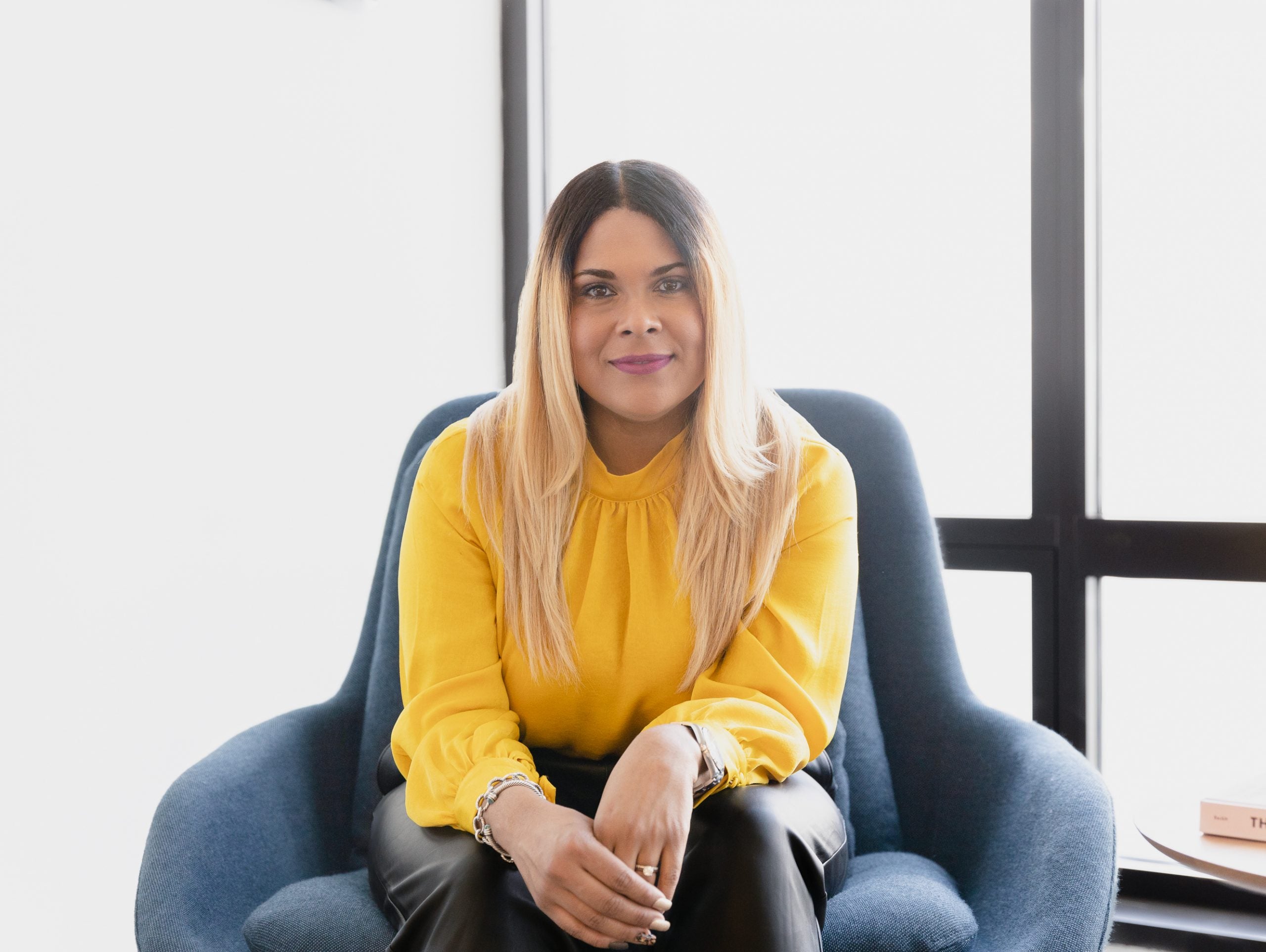
For over 50 years, Gap Inc. has championed inclusivity not only for its teams and customers but also through the product and experiences they create that are Open to All. They were founded on the belief to “do more than sell clothes,” but that means not settling for the good they do today and recognizing there’s more work to be done. And that’s where Kisha Modica comes in. With a passion for diversity and inclusion, she is committed to creating holistic, systemic and sustainable change to enable a culture of belonging for their employees, customers and communities.
Power to Empower
When Kisha arrives at work, she brings a lot to the table. Using her experience as a Black woman, her expertise as a diversity practitioner and her understanding of the retail business she can assess the strategic and necessary transformation necessary to drive systemic change. “As the Head of Equality and Belonging for Gap Inc., I get a chance to look at the organization in a holistic way and work to help us reach our full potential,” says Kisha. “I’m excited to be part of a powerful movement with a company I believe at our best, can be the most inclusive company in the world.”
Her experiences also give Kisha a unique vantage point. “If you squeeze the balloon on one side, it bulges somewhere else,” she explains. “For instance, launching a new mentoring program to address the belonging and retention of people of color without first making space to address behaviors and build cultural competence equates to a program focused on teaching people how to navigate and operate in a broken system.” She goes on to say that this isn’t intentional, “in this work, you need to know where that bulge is happening and what the impact will be. That’s why it’s so incredibly important to go slow to go fast.” Working amid a pandemic and a national reckoning on racial inequality requires focusing on solving real problems, not maintaining appearances. Kisha says that requires clear intent, rigor and discipline, “we can’t sacrifice impact for ‘feel good’ short-term solutions.”
Redesigning Diversity
After watching the viral video of Ahmaud Arbery being shot as he jogged through his neighborhood, learning of Breonna Taylor’s death as she slept in her bed and then the horrific murder of George Floyd, this industry that prioritized comfort and surface-level enlightenment has started to shift and make progress. At Gap Inc., they have reflected on their legacy of support for social causes and gender equality and have emerged with a clear purpose—to be Inclusive, by Design. “We’ve taken a hard look in the mirror and have a renewed focus and commitment to fight for true social equality for all,” she says.
Gap Inc employs 76% women globally and 55% who identify as people of color in the U.S. However, as Kisha says, they still have work to do across levels and functions to fully represent the many communities they serve. “We will double the representation of Black and Latinx employees at all levels in our U.S. HQ offices by 2025 to mirror our customers, with a particular focus on functions that make and market our products to ensure we are creating for all, with all,” Kisha says. “And, as we strive to operate stores that reflect the local communities we serve, we plan to increase representation of Black employees by 50% in our Store Leader roles in the U.S. by 2025.” They will also continue to focus on cultivating a deep sense of belonging throughout the employee experience.

As a Black woman, Kisha has navigated what many describe as Working While Black—an emotional tax of grind culture, isolation, code-switching, tokenism and the fear of failure and its impact on your community’s advancement. “When you’re the ‘only’ or one of very few, you carry the weight of your own career as well as a deep sense of responsibility to illuminate and clear a career path for those traveling a few steps behind you,” she says. Societal norms made homogenous teams commonplace and forced leaders of color to second guess hiring people who looked like them. “That’s why at Gap Inc. we’ve been focused on having ‘Real Talk’ where we can surface and challenge these assumptions and mindsets while evaluating all of our talent practices,” says Kisha.
Kisha believes that companies looking for solutions won’t find a quick fix. “A culture of inclusion and equity requires transformation, an exhaustive and deep shift in practices, norms, culture and composition,” she says. So, at Gap Inc., they have taken a critical step toward achieving diversity, equality and inclusion goals by creating the infrastructure and the necessary conditions for success. Kisha says, “At the close of this year, we will have grown our team from 5 to 20 so that we can drive real and sustainable change and maximize our collective impact across our brands.”
Make the Commitment
More than ever, people want to be heard, seen and provided with an opportunity to belong and thrive on their terms. Kisha’s team works with Inclusion Strategist Amber Cabral, who always reminds them that “the tough work begins with you.” So, if you are ready to commit to making a positive change, Kisha has some advice that has been a guiding light throughout her journey. She says to focus on what counts and drown out the extraneous noise. If your purpose is not clear, you’ll get distracted, demotivated and swept away quickly. She also advises not to get stuck in its complexity and commit to being better each day by creating simple yet powerful solutions. This is emotionally-taxing work, so prioritize your well-being and self-care. One way to do that is to create your own personal board of directors with people who are invested in you and want to see you succeed. “Build a community of purpose,” says Kisha. “Our individual and collective success will only be realized if we work diligently towards shared objectives that create value for all, not just a select few.”
These issues are complex and systemic and will not be solved overnight. Still, Kisha is inspired by the real talk conversations and meaningful actions happening in workplaces and across our communities. She says, “We’re holding ourselves and others accountable and I’m seeing widespread courage to challenge status quo practices, outdated norms and assumptions that exacerbate Diversity & Inclusion challenges.”
Follow @gapinc to see how they stand for inclusion and equality.
